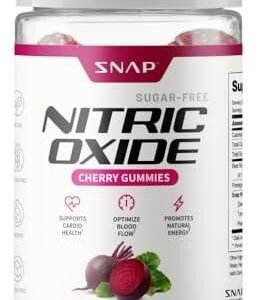In the pursuit of optimal health and fitness, the quest for lean muscle growth remains a paramount objective for many athletes, bodybuilders, and fitness enthusiasts alike. With the ever-evolving landscape of nutritional science, an array of supplements has emerged, each claiming to offer remarkable benefits in supporting muscle development. However, the sheer volume of options available—ranging from protein powders and amino acids to creatine and branched-chain amino acids—can often lead to confusion and misinformation. This article aims to meticulously analyze the most effective supplements for lean muscle growth, examining their mechanisms of action, the scientific evidence backing their efficacy, and their roles in a well-rounded fitness regimen. By delving into the complexities of physiological responses to these supplements, we will provide a clearer understanding of how they can be utilized to enhance muscle hypertrophy, support recovery, and ultimately contribute to achieving fitness goals. Through a critical evaluation of current research, this exploration seeks to empower individuals with the knowledge necessary to make informed decisions regarding their supplementation strategies.
Table of Contents
- Understanding the Mechanisms of Muscle Protein Synthesis and Supplementation
- Evaluating Key Nutrients: Protein, Creatine, and BCAAs for Lean Muscle Development
- Comparative Analysis of Popular Supplements: Efficacy and Safety Considerations
- Integrating Supplementation into a Holistic Approach for Optimal Muscle Growth
- Insights and Conclusions
Understanding the Mechanisms of Muscle Protein Synthesis and Supplementation
Muscle protein synthesis (MPS) is a complex biological process primarily driven by the availability of amino acids, particularly essential amino acids (EAAs), and the stimulation of signaling pathways that trigger muscle growth. When we engage in resistance training, mechanical tension on the muscle fibers activates pathways such as the mTOR (mechanistic target of rapamycin) signaling pathway, which plays a crucial role in regulating cell growth and MPS. Understanding these mechanisms is essential, as the effectiveness of supplements aimed at promoting lean muscle growth largely depends on their ability to enhance MPS through various means, such as increasing EAA availability or stimulating the mTOR pathway directly.
In the realm of supplementation, several key players stand out for their role in facilitating MPS. Consider the following supplements prevalent in muscle growth formulations:
- Whey Protein: Fast-digesting complete protein that provides a rich source of EAAs.
- Creatine Monohydrate: Enhances strength and anaerobic capacity, indirectly supporting MPS.
- BCAAs: Especially leucine, they serve as crucial triggers for MPS.
- Beta-Alanine: Improves endurance, allowing for more intensive training sessions and subsequent muscle growth.
| Supplement | Primary Benefit | Impact on MPS |
|---|---|---|
| Whey Protein | Fast recovery | Increases EAA availability |
| Creatine | Enhanced strength | Supports high-intensity training |
| BCAAs | Reduced muscle soreness | Stimulates mTOR activation |
| Beta-Alanine | Improved endurance | Allows for prolonged training sessions |
Evaluating Key Nutrients: Protein, Creatine, and BCAAs for Lean Muscle Development
When it comes to developing lean muscle, understanding the role of protein, creatine, and BCAAs is essential for optimizing your supplementation strategy. Protein serves as the building block for muscle tissue, with adequate intake being crucial for recovery and growth. Research suggests that aiming for a daily intake of approximately 1.6–2.2 grams of protein per kilogram of body weight can significantly enhance muscle synthesis. Foods rich in protein, alongside quality supplements, can help ensure you meet your requirements. It is also important to consider the timing of protein consumption, as studies indicate that spreading intake across multiple meals can further stimulate anabolic processes in the body.
Creatine is another powerful ally in the quest for lean muscle growth. It works by replenishing ATP stores, enhancing strength and performance during high-intensity activities. The benefits of creatine supplementation go beyond immediate workouts, as it promotes adaptations that lead to long-term muscle gains. Meanwhile, BCAAs (branched-chain amino acids) play a critical role in reducing muscle soreness and fatigue while also promoting protein synthesis. These two supplements can be particularly effective when used synergistically, leading to enhanced recovery and more frequent training sessions. Consider incorporating them into your regimen for a comprehensive approach to muscle development.
Comparative Analysis of Popular Supplements: Efficacy and Safety Considerations
When comparing popular supplements for lean muscle growth, it is essential to assess both efficacy and safety. Supplements like whey protein, creatine, and branched-chain amino acids (BCAAs) have garnered significant attention in fitness circles. Studies suggest that whey protein is highly effective in promoting muscle hypertrophy when consumed post-workout, while creatine enhances strength and power output by improving ATP regeneration during high-intensity exercises. BCAAs, particularly leucine, stimulate muscle protein synthesis, making them a popular choice among athletes looking for quick recovery and growth.
However, safety considerations must also be prioritized, as individual responses to supplements can vary greatly. For instance, while whey protein is generally safe for most people, those with lactose intolerance may experience adverse effects. Creatine, though widely regarded as safe, has raised concerns regarding kidney strain, particularly in individuals with pre-existing health conditions. It is crucial to evaluate the dosage and quality of supplements, ensuring they come from reputable sources to minimize risks. The following table summarizes a few key considerations when evaluating these popular supplements:
| Supplement | Efficacy | Safety Considerations |
|---|---|---|
| Whey Protein | Effective for muscle growth post-workout | Lactose intolerance issues |
| Creatine | Improves strength and power | Potential kidney strain in at-risk individuals |
| BCAAs | Stimulates protein synthesis | Generally well-tolerated, but excessive use can cause fatigue |
Integrating Supplementation into a Holistic Approach for Optimal Muscle Growth
While supplementation can play a pivotal role in muscle growth, it is essential to integrate these products into a comprehensive fitness and nutrition strategy. Protein powders, for instance, are widely used to help meet daily protein needs, facilitating muscle repair and growth. However, relying solely on these supplements without adequate dietary sources may lead to imbalances. A well-rounded approach should include whole food sources such as lean meats, eggs, and legumes, which provide essential vitamins and minerals alongside macronutrients. Additionally, hydration, rest, and proper training routines are crucial elements that should not be overlooked when optimizing muscle development.
Incorporating supplements into a holistic regimen also means understanding their interactions and timing. For example, creatine has been shown to enhance strength and muscle mass when taken around training sessions, but it should be complemented with a diet that includes complex carbohydrates to maximize its effectiveness. To clarify the potential of various supplements, here’s a brief overview:
| Supplement | Benefits | Usage Tips |
|---|---|---|
| Whey Protein | Promotes muscle repair and growth. | Ideal post-workout for quick absorption. |
| Creatine | Enhances strength and increases muscle mass. | Take before or after workouts with a carbohydrate source. |
| BCAAs | Reduces muscle soreness and fatigue. | Use during workouts for sustained energy. |
| Beta-Alanine | Increases endurance and reduces fatigue. | Best taken daily for cumulative effects. |
Insights and Conclusions
the exploration of supplements for lean muscle growth reveals a complex interplay of science, individual physiology, and lifestyle factors. While certain supplements, such as protein powders, creatine, and branched-chain amino acids, have demonstrated efficacy in promoting muscle hypertrophy and recovery, their effectiveness can be significantly influenced by variables such as diet, training regimens, and overall health status. It is imperative for individuals to approach supplementation with a critical lens, prioritizing a well-rounded nutritional strategy, regular exercise, and professional guidance when necessary.
Moreover, the landscape of sports nutrition continues to evolve, with emerging research shedding light on new compounds and methodologies. As such, staying informed and adapting one’s supplementation protocol in accordance with the latest findings is vital for anyone serious about optimizing their muscle growth journey. Ultimately, supplements should be viewed as complementary tools rather than panaceas, serving to enhance, but not replace, the foundational elements of effective training and nutrition. For those committed to achieving their fitness goals, a comprehensive understanding of these factors will be invaluable in navigating the often-overwhelming world of dietary supplementation.





